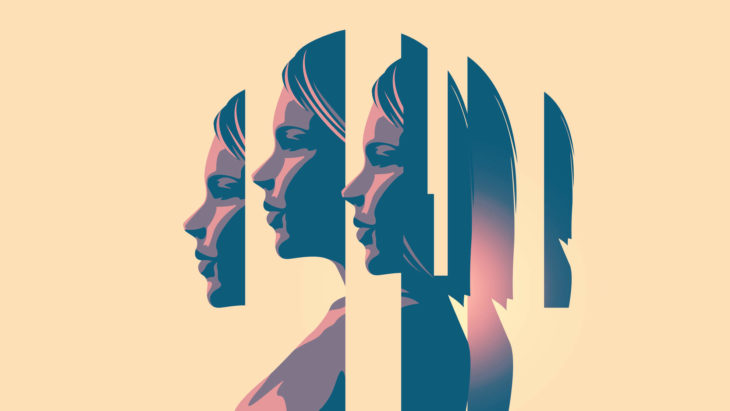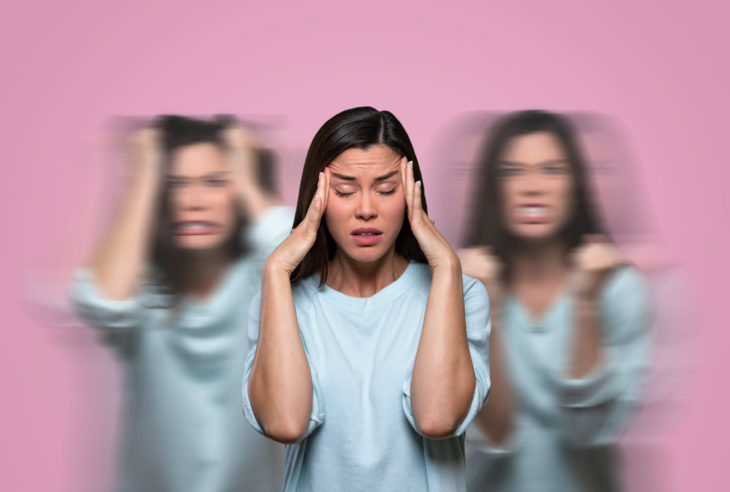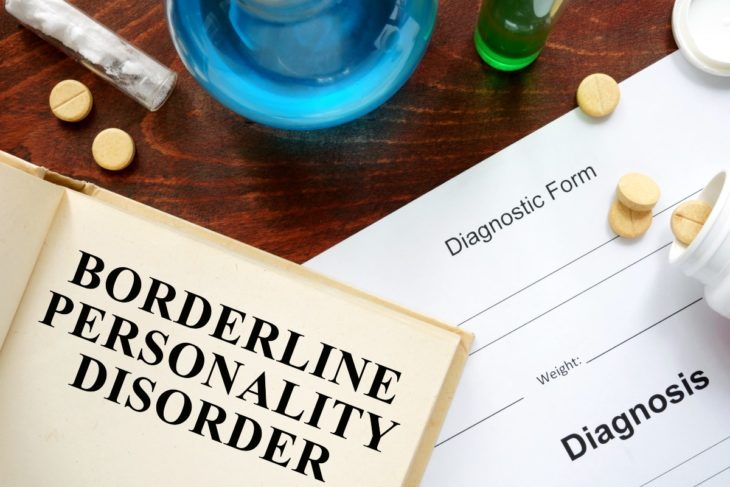I’ve admitted many issues with my mental health over the years. What started as a suspicion of Seasonal Affective Disorder in high school has, for a decade now, sent me on a journey of learning and re-learning my capabilities as a human being with mental illness. Not once have I ever felt shame. Now, after years of misdiagnoses and my own varying experiences with the mental health system, I know exactly what is plaguing me, and for the very first time in my life, I feel a true and deep shame.
I’m living with Borderline Personality Disorder, a disease that affects one in one hundred people, mostly women, and has attracted a violent and abusive vitriol. It is characterized by rapidly changing moods with unpredictable triggers, a desire to self-harm, demands for attention that are misunderstood to be “manipulations,” and frequent dissociation, among other major symptoms. I’ve been a survivor of this illness for an entire post-pubescent life full of upswings and downswings, with moments of great pain and huge victories.

Source: Getty Images
It wasn’t until I began to question my diagnoses of depression and anxiety years ago that I realized just how stigmatized the illness is. I was earnest when I approached my therapist about my hunch about BPD in college. I hadn’t bothered going deeper into the bowels of Google yet, and was clueless about just how extreme the backlash could possibly be for someone with BPD. She looked up from her clipboard, alarmed and alert, and looked at me hard. “Do not tell that to a psychiatrist. Do not tell that to anyone else who treats you,” she said. “They will not treat you, and they could hurt you.” I didn’t consider the diagnoses again for half a decade. I told myself I am a girl who Feels Too Much, and that was going to have to be the end of the conversation.
Let’s not get it twisted: the psychiatric establishment is in large part responsible for the stigma against those of us living with the disorder. While my care team is incredible, they will readily admit to the faults of their peers. My psychiatrist during intensive inpatient shared this knowledge without batting an eye. My caseworker followed suit. In my research to discover the truth behind these ideas, I found that psychiatrists will go out of their way to avoid treating people with BPD, despite the high suicide risk for untreated patients. We are considered difficult, resistant to treatment, and dangerous.
The deeper into the internet you go, the more violent this rhetoric becomes, calling for the isolation and abandonment of loved ones with BPD. Can you see how this might make someone with BPD particularly vulnerable to emotional abuse, especially by means of gaslighting? A top–selling book on Amazon on the subject asks potential readers if they want to “protect themselves and others” from the “violence” of the disorder.
I don’t do those Google searches anymore. I’m not violent, manipulative, or cruel. The popular articles are far too painful for me to read for myself, and they send me into a frenzy of self–loathing. The more I read that I was to be avoided, the more I wanted my loved ones to avoid me. Of course, as a person with BPD, the next moment, I may plead for them to come right back. It’s tumultuous. I’m doing the best I can, and the best I can is starting to look better every day.

Source: AdobeStock
Today, as I type this, I’m looking over my files and stacks of papers that detail my diagnoses and prognosis as a young woman surviving and thriving with Borderline Personality Disorder. At the moment, I’m level- I’ve named this feeling exactly that. Level. Collected. I have it all together. Within the next few hours, I anticipate a spot of High, (not Ecstatic, that’s for special occasions), and possibly a Small Low.
I’m not crazy, yet I can become crazed. There’s a certain feeling that I only refer to as Ugly where I find myself screaming, wailing, pleading for help, and frenzied in the level of distress I feel. I dodge Ugly fairly often, but when it shows up, it shows the fuck up. It puts whoever is around me through a hell of a ride, and the only upside to this feeling of helplessness is the calm and lull that follow afterwards. I sleep soundly, and more often than not, wake up feeling excellent and motivated. Lather, rinse, repeat.
As for that dirty word- the M word, manipulation – I’ve cut it from my vocabulary. I don’t mean to take strange and dramatic means to get my needs met, it’s just a demon I have to deal with. This is a huge factor in the hatred other people have for those of us who are living with BPD. If we aren’t feeling loved or wanted or good enough, our emotional reactions to this perceived deficit are incredibly strong and powerful.
The guilt I feel when I catch myself in the midst of this behavior tends to make me even more upset. I don’t want to be a burden. I don’t want to be looked at as someone who absolutely must get her way, and I definitely don’t want any of my legitimate needs to be thrown out the window because of an occasional event. At first, my partner and I referred to it as “doing The Thing,” but that felt full of blame in the same way the word “manipulation” did. Now, he asks me if this is the way I want to meet my needs, or if we can find the alternative.

Source: AdobeStock
I’m getting kind of good at finding those alternatives! I’m learning to examine the facts behind other people’s actions, and prevent the spiral when it begins to pick up speed. It’s not unlike being a child again, this business of being taught how to process emotions by a trained professional. Deep breaths and baby steps. Or: Deep breaths, baby steps, and weekly therapy is more like it.
I am a lot of other things besides ashamed. I am a good role model: people trust and love me with their children. I am a loud and unrelenting advocate for every animal of the earth. I am as empathetic as one person can be. I am in love with a man who takes this road with me. I am a good friend. I make delicious pasta. I can do a handstand for a full minute now- well, almost. I am a radiant being, and I am a good person, and I love with my whole self. I am still, and will always be, a girl who Feels Too Much, but I am learning how to handle it and move forwards and upwards with my life.
I was told in therapy when you tell yourself those good things often enough, your brain will rewire itself to believe them. I’m saying them until I believe them – and I’ll believe them because it’s the truth.
Original by Lauren Mcgrath
